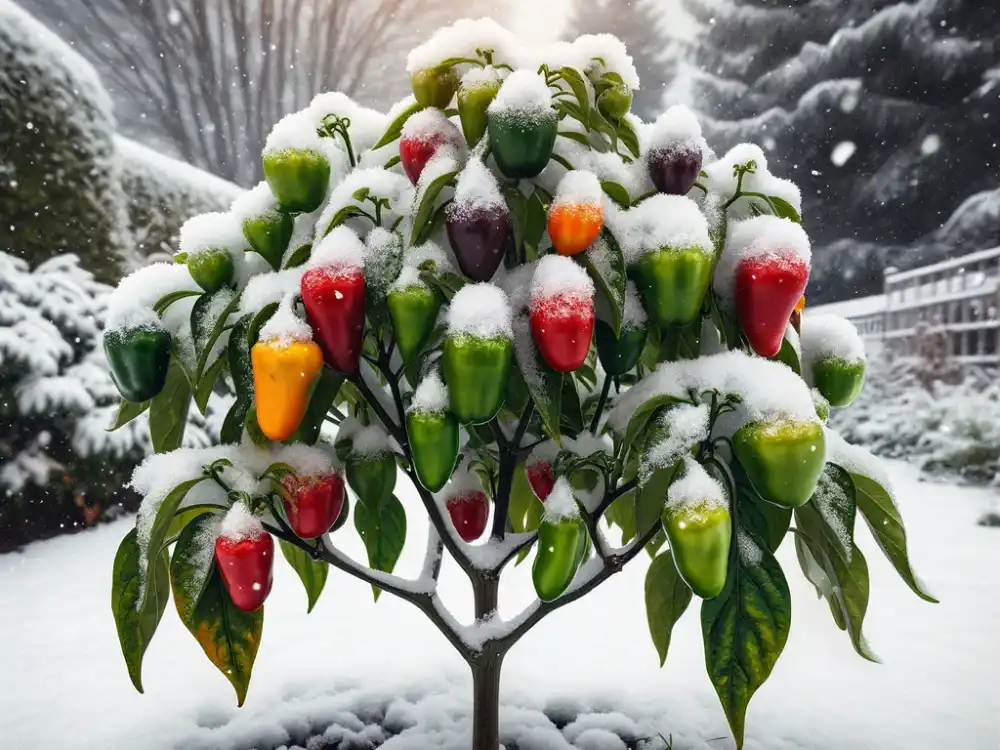Vegetable Gardening
Pepper Plants’ Lifecycle: Will They Return Next Growing Season?
Pepper plants are a popular choice for home gardeners due to their vibrant colors and delicious flavors. If you’ve grown peppers before, you may be wondering if these plants will grow back next year. In this blog post, we will explore the life cycle of pepper plants and discuss whether they have the ability to regrow in subsequent years.
The Life Cycle of Pepper Plants
Pepper plants, like many other annual plants, have a specific life cycle. They typically grow from seeds, develop into mature plants, produce fruits, and eventually die off at the end of the growing season after a hard frost. This means that most pepper plants are considered annuals, which complete their life cycle within a single year.
However, there are some exceptions to this rule. If you live in a warm climate a typical annual pepper plant will continue to grow as long as temperatures remain above freezing.
Certain pepper varieties, known as perennial peppers, have the ability to survive for multiple years and may regrow in subsequent seasons. These perennial varieties are less common than their annual counterparts and require specific growing conditions to thrive.
Perennial Pepper Varieties
Perennial pepper varieties, such as the Rocoto or Tree Pepper, are native to regions with milder climates, such as South America. Unlike the typical annual peppers, these plants have the ability to survive through winter and regrow in the following year.
It’s important to note that perennial peppers may not be suitable for all regions. They require a longer growing season and milder winters to survive. If you live in a colder climate, it may be challenging to grow perennial peppers unless you provide them with proper protection, such as bringing them indoors during the winter months or using protective coverings.
Overwintering Pepper Plants
If you’re determined to keep your pepper plants for another year and you live in a region with colder winters, you can try overwintering them. Overwintering involves providing the plants with the necessary care and protection to survive the winter months and regrow in the following spring.
Here are some steps to help you successfully overwinter your pepper plants:
- Choose healthy plants: Select the healthiest and most vigorous plants for overwintering. Weak or diseased plants are less likely to survive.
- Prepare for transplanting: Before the first frost, carefully dig up the pepper plants, making sure to include as much of the root system as possible.
- Trim and clean: Trim back the plants to a manageable size, removing any dead or damaged foliage. Gently clean the roots to remove excess soil.
- Provide proper storage: Place the trimmed plants in pots or containers with well-draining soil. Store them in a cool, dark place with temperatures between 50-55°F.
- Monitor and water: Check on the plants periodically throughout the winter. Water sparingly to prevent the soil from drying out completely.
- Transplant in spring: Once the danger of frost has passed and the weather begins to warm up, transplant the overwintered pepper plants back into the garden or larger containers.
By following these steps, you can increase the chances of successfully overwintering your pepper plants and enjoying another year of fresh peppers.
Conclusion
While most pepper plants are considered annuals and complete their life cycle within a single year, there are perennial pepper varieties that have the ability to regrow in subsequent years. These perennial peppers require specific growing conditions and may not be suitable for all regions. However, if you’re determined to keep your pepper plants for another year, you can try overwintering them by following the steps outlined above.
Remember, gardening is a rewarding experience, and whether you choose to grow annual or perennial peppers, the joy of harvesting your own fresh produce is always worth the effort.






